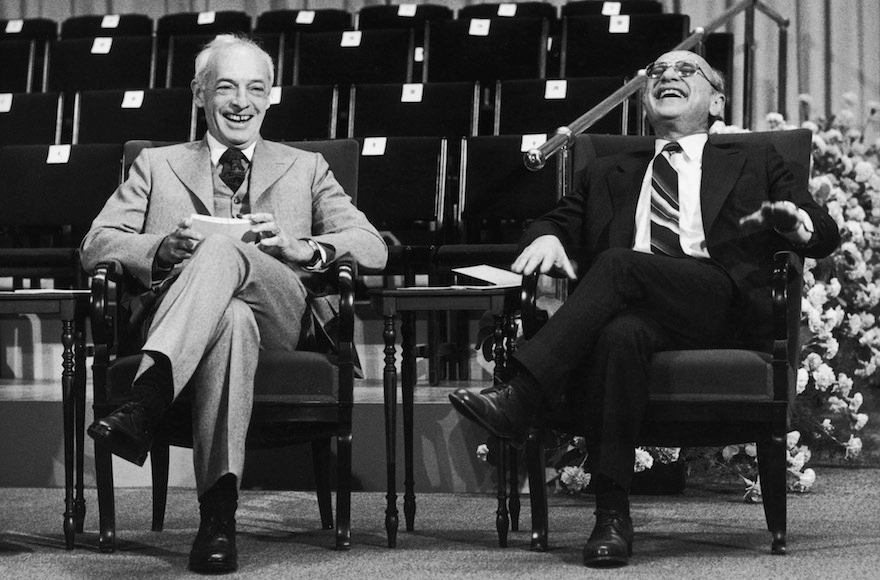The 1976 Nobel Prize for Literature was awarded here yesterday to Saul Bellow, the American novelist and academician whose large body of work epitomizes the experience of the Jewish intellectual in America in this century. He lost out winning the Nobel Prize in October 1975 despite indications that he was a front-runner for the award.
Born in Montreal, Canada, 61 years ago as Solomon Bellows, son of Jewish immigrant parents from Russia, he changed his name when he started publishing his works in the 1940s. He has been a professor of literature at the University of Chicago since 1962 and also taught at the University of Minnesota and at Princeton University.
Bellow won the 1976 Pulitzer Prize for fiction for his latest novel “Humboldt’s Gift,” published last year. He has received the U.S. National Book Award three times, the French Prix International de Literature in 1965, and the Jewish Heritage Award in 1968. His latest book, “To Jerusalem and Back,” published this year, is a non-fiction personal account of his impressions of Israel, a country he has visited on a number of occasions.
Two of his books, “Herzog,” published in 1964 and “Mr. Sammler’s Planet,” which won him the National Book Award in 1971, have been translated into Hebrew and were enthusiastically received by Israeli critics and public.
THIRD JEW TO WIN THIS YEAR
Bellow is the first American to receive the Nobel Prize for Literature since it was awarded to John Steinbeck in 1962. The Swedish Academy’s announcement yesterday gave Americans a clean sweep of the Nobel Prizes awarded for this year. The prize for literature amounts to about $162,000. Two other American Jews won or shared this year’s Nobel Prizes in other fields–Dr. Milton Friedman in economics and Dr. Baruch Blumberg in medicine.
Bellow spent his childhood in the poor section of Montreal where his father, who had been a vegetable merchant in St. Petersburg, supported his family by collecting wood scraps from lumber mills. Later he became a coal dealer. The family moved to Chicago when Bellow was nine. He attended Northwestern University and the University of Wisconsin where he earned a degree in anthropology and sociology in 1937.
Bellow wrote for a number of American newspapers and magazines. His first novel, “Dangling Man,” published in 1944, was the story of a young Jewish radical seeking meaning in American life. His first major success as a novelist came with publication in 1953 of “The Adventures of Augie March,” whose protagonist was a young Jew who grew up on the sidewalks of Chicago.
The novel “Herzog,” published in 1964, is regarded as Bellow’s greatest success. As in his previous novels, the major character was a Jew, a professor and would-be writer involved in an unhappy marriage. “Humboldt’s Gift” continues in the same vein, depicting the Jew as an anti-hero buffeted by circumstances he cannot control.
JTA has documented Jewish history in real-time for over a century. Keep our journalism strong by joining us in supporting independent, award-winning reporting.
The Archive of the Jewish Telegraphic Agency includes articles published from 1923 to 2008. Archive stories reflect the journalistic standards and practices of the time they were published.




